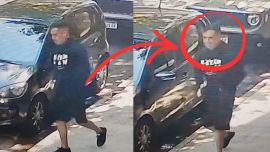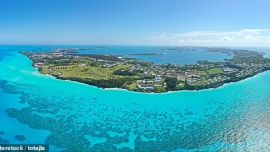The Buenos Aires City government has confirmed a host of new restrictions on commercial activity and shopping, increased controls and checkpoints to assess the circulation of people in and out of the capital and the closing of 11 overground train stations.
The measures are part of the new phase of the quarantine lockdown designed to tackle the spread of Covid-19 in Argentina. Over the weekend, President Alberto Fernández confirmed that the quarantine period would be extended until June 7, though some provinces have had restrictions loosened after recording no new cases.
The focus now is firmly on halting the spread of the coronavirus in Buenos Aires City and Buenos Aires Province, where more than 80 percent of all infections in Argentina have been diagnosed, especially in the City’s overcrowded villas, where conditions facilitate the spread of Covid-19.
"We make decisions based on the data and evidence, which today shows us that the peak of infections is coming," Buenos Aires City Mayor Horacio Rodríguez Larreta said Saturday at a press conference.
The federal capital has seen a sustained increase in the number of Covid-19 infections over the last two weeks, and the head of the City government said the high density of people in the metropolitan area was aiding the spread of the virus. Rodríguez Larreta said both the national and city governments would now look to limit the amount of permits granted to citizens and residents by allowing existing ones to expire and forcing individuals to re-register.
.“In the Metropolitan Area there were millions of permits [granted] – they will have to be re-registered one by one, " said Rodríguez Larreta, who also announced limits on commercial activity in the City’s busiest areas.
"The problem is not commerce, but all the people that crowd between places, those who go to walk or look at windows. We are going to restrict commercial activity in centres of greater agglomeration," he added.
The measures include the closure of popular commercial shopping areas downtown and in the neighbourhoods of Retiro, Once, Constitución, Belgrano, Chacarita, Balvanera and Caballito, among others.
“Food stores and pharmacies will continue to remain open,” said the mayor, “what is restricted is the stores that we have added in the last two weeks."
City government Cabinet Chief Felipe Miguel said the objective was now to ensure that the isolation order and social distancing regulations are respected so that the increase in cases can be kept within the capacity of the health system to respond to it, and not to overflow it.”
"We are at a stage that we knew was going to arrive. We know that the advance of the virus cannot be stopped. [But] We can work so that all people who suffer from it can receive the care they need," he stressed.
The minister also praised porteños for how they had adapted to the lockdown, but warned that the number cases would increase in the coming days and that citizens should not stop taking precautions.
Details of new measures
– Permissions to circulate around the City
City Mayor Horacio Rodríguez Larreta said that officials were carrying out"a comprehensive re-registration of all permits." In the metropolitan area there were millions of permits issued. As with the national government’s new guidelines, citizens will be forced to re-register one-by-one, with their permissions linked to specific vehicle registration plates. Existing permits will expire on May 29.
– Access to City or Conurbano
Traffic controls and permit checks will be increased at the 36 access routes to and from Buenos Aires Province with 430 traffic agents and 250 City police. Movement will be restricted only to essential workers.
– Public transport
Public transport will be reserved only for essential workers, amid a clampdown on general use. In the case of buses, which currently account for 92 percent of trips, greater controls on passengers will be imposed, as will checks on circulation permits, especially as transport hubs. The Subte underground metro system will continue to have 50 percent of stations shuttered and 11 of 42 overground rail stations within the City’s limits will be closed (Rivadavia, Lisandro de la Torre, Tres de Febrero, Colegiales, Coghlan, Drago, Pueyrredón [Tren Mitre, ramales Tigre, Suárez y Mitre], Hipólito Yrigoyen [Tren Roca], Villa Luro, Floresta [Tren Sarmiento], Presidente Illia [Tren Belgrano Sur]).
– Restrictions on shops
The City government will place new restrictions on large commercial areas to avoid crowds building up. Commercial activity in the busiest parts of Buenos Aires – such as Once, Avenida Avellaneda and Scalabrini Ortiz y Córdoba will be restricted and and trade will be limited in these areas to essential businesses only.
– Measures in barrios populares
In the capital’s villas, the City government will more than triple the amount of community prevention checkpoints at entrance and exit points from 15 to 50. There, residents can have their fevers checked and those showing symptoms of the virus can be inspected and referred if necessary. Thermal cameras will also be deployed to check temperatures in areas of high movement. In addition, there will be a “reinforcement of testing, hygiene and disinfection” measures in public spaces and more food assistance points.
– Outings for children
Recreational outings for children under the age of 15 will continue, with the same restrictions in place: Kids can go out one day each weekend (depending on their parent’s DNI identity card number), for one hour, within a 500-metre radius from their home. Children under the age of six are allowed to go out without a face mask (those older must wear one). The use of playgrounds is prohibited, though children can enter parks and walk their paths, as long as the public spaces are open.
– TIMES/PERFIL






















Comments